-
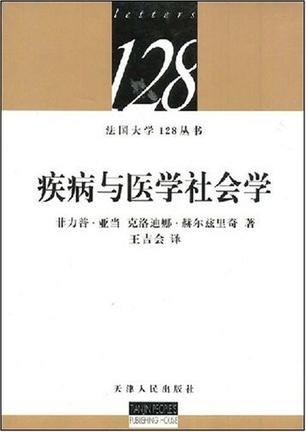
疾病与医学社会学
今天医学知识和实践让每个人都会碰到疾病问题:对找医生看病,身体检查和疾病治疗等具体事情我们都已习以为常,诊断结果成为患者自我调整与适应疾病造成的破坏的主要依据,作为生物体的人也因为受到的照顾而改变了社会意义。 《疾病与医学社会学》尝试从宏观上勾勒了促成现代医学以及今天患者地位形成的社会变革,展示了社会对个体健康状况极具社会诠释与实践的影响。书中的重点不是健康问题,而是疾病问题,更确切地说是身体疾病,即影响人体的疾病。现行健康体制下流行病往往卷土重来,公共场所疾病也不时出现。《疾病与医学社会学》可以使我们了解该体制下的一些关键问题,因而颇具现实意义。 另外从理论意义上,两位作者通过多学科的尝试,为研究与疾病有关的社会进程确立了理论,并促进了疾病社会学与医学社会学的完善,使我们对这一领域的研究有了一个更为基础的了解与思考。 -
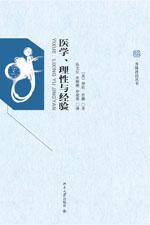
医学、理性与经验
本书在对以生物医学为典型代表的实证主义与经验主义疾病观的批驳中,在对数种医学人类学研究取向的斟酌中,作者倡导一种与批判理论保持紧密关系的解释或曰意义中心取向,并尤其说明了将病患作为嵌于地方道德世界、政治关系、时间之流等等中的“审美对象”予以解读的理论潜力。 -
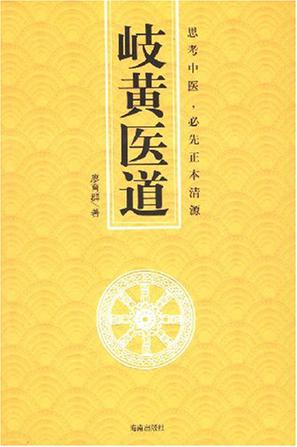
岐黄医道
《岐黄医道》主要内容:对于执中国传统医学为业者,或研究这门学问的人来说,“历史的知识”确实显得非常之重要。如此说,至少有两方面的意义:首先,由于当代使用的中医治疗方法与理论体系,是自古以来一脉相承延续不断的,未见有不治古典的而能言中医者;其次,在更深层次上讲,如果没有对于我国古代文化的较多了解,则无论如何不可能看清中国传统医学之体系是怎样逐渐发展而成的。这也就是说,如果不把中国传统医学置于从古至今社会发展的总体背景之中加以考察,则无法真正学懂中医,最多只能成为一个疗效较好的治疗家,或是只知背诵经典的所谓“理论家”。因而学习中国医学史的目的,并不仅限于了解从古至今、历朝各代有些什么经典著作、杰出人物,而更为重要的是弄清其发展过程与演变源流,如此方能步入知其然,亦知其所以然的境地。 -
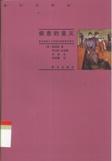
病患的意义
-
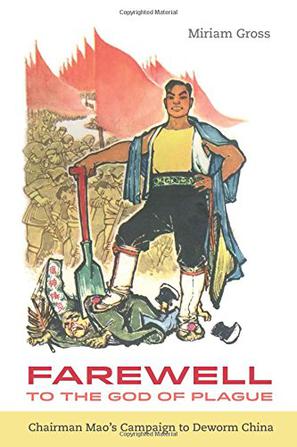
Farewell to the God of Plague
Farewell to the God of Plague reassesses the celebrated Maoist health care model through the lens of Mao’s famous campaign against snail fever. Using newly available archives, Miriam Gross documents how economic, political, and cultural realities led to grassroots resistance. Nonetheless, the campaign triumphed, but not because of its touted mass-prevention campaign. Instead, success came from its unacknowledged treatment arm, carried out jointly by banished urban doctors and rural educated youth. More broadly, the book reconsiders the relationship between science and political control during the ostensibly antiscientific Maoist era, discovering the important role of “grassroots science” in regime legitimation and Party control in rural areas. -
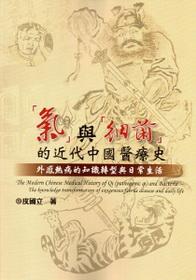
氣與細菌的近代中國醫療史
一般人得了SARS、流行性感冒或法定傳染病,您敢去看中醫嗎?那些兇狠、來無影去無蹤的細菌、病毒,中醫們有辦法處理嗎?這不免讓人感到懷疑:也許中醫可以處理頭疼腦熱,但中藥可以殺死細菌嗎?也許,讀過這本書後,對上面這些問題,您會有全新的思考與不同於過往的見解。 從醫學史出發,本書帶領您穿梭時空,進入距今將近百年前的中國社會,重現一段中醫抗菌的奮鬥史。在中西醫衝突、論戰的民國時期,中醫是如何回應西方細菌學的衝擊?他們在西醫的科學實驗和一步步佔據國家衛生主權的過程中,怎麼運用自身的外感熱病知識體系,來構築一套中醫式的傳染病學,並且在日常生活中找到中醫藥可以發揮的空間。 作者不盲從西方理論,從傳統文化中構思,創造從「重層醫史」的視角出發的新研究。先鋪陳出中西醫論爭的時代氛圍,並細心地關照了近代中醫在古典文獻、日常生活養生抗病、醫者志業和中西疾病觀的對話等各方面的史實,展現了全面的視角。受現代醫學影響,傳統中醫雖仍為民眾信任,但其實有很多論述與臨床技術其實是處在一種「準失傳」的狀態,多數中醫不去重視,民眾也不知道傳統中醫有何更強的能耐,更別奢望國家科研資源的大量挹注,這一切遂使傳統醫學的理論、生生之技的運用範圍,愈形窄化、順時流失,這是非常可惜的事情。 歷史學研究不能與現實生活脫節,作者透過醫史的研究,希望能喚醒中醫們對自身體系的認識與自信,並期待更多民眾與知識分子(包括現代西醫與科學家)瞭解中醫文化之價值,走出百年來「廢中醫」的陰影,揚棄刻板的印象,也為自己的實際治療與日常養生,提供另外一種思考的可能性。 英文書介: The Modern Chinese Medical History of Qi (pathogenic qi) and Bacteria-The knowledge transformation of exogenous febrile disease and daily life Does anyone infected with SARS, influenza or statutory infectious diseases dare to attend the clinic of Traditional Chinese Medicine (TCM)? Can Chinese medicine practitioners deal with those vicious and invisible bacteria and viruses? It is doubtful whether TCM can kill bacteria or viruses. Perhaps this book can provide you with a brand new direction of thinking which is different from the previous perspectives for the aforementioned questions. Based on the history of medicine, this book guides readers to explore and review the history of TCM’s fight against bacteria in Chinese society approximately a hundred years ago. In the era of Republic of China when the controversy between western medicine and TCM was intense, how could TCM respond to the impact of western bacteriology and use its own knowledge system of heat diseases to develop a TCM-based concept of infectious disease? The author intends to awaken Chinese medicine practitioners’ knowledge and confidence in their own systems by studying the history of medicine. Moreover, the author also hopes that more people and intellectuals (including modern western medicine practitioners and scientists) can understand the value of TCM, free themselves from the shadow of “useless TCM” for centuries, get rid of stereotypes and seek for a method to integrate various concepts, in order to provide themselves with another feasible technique and thinking in the aspects of disease treatment and daily health care.